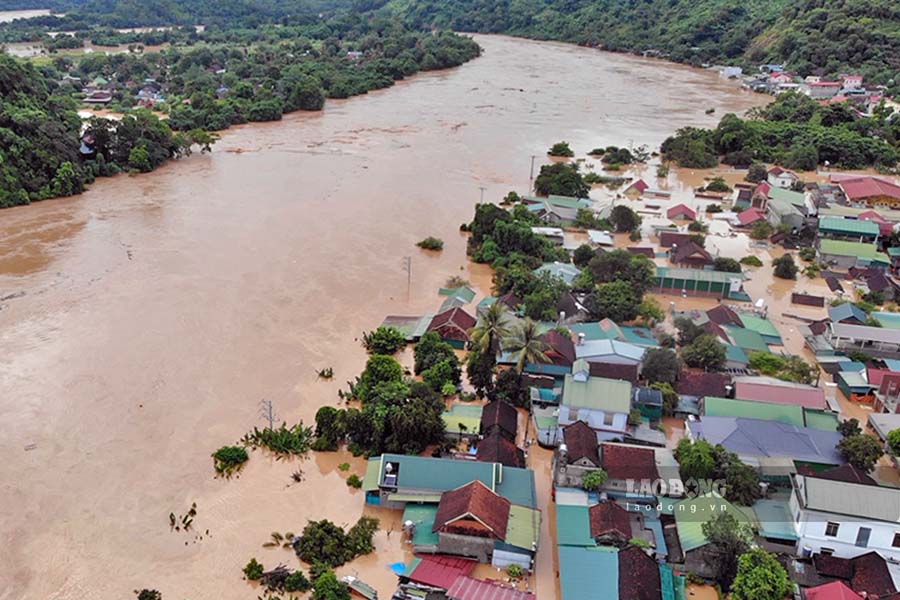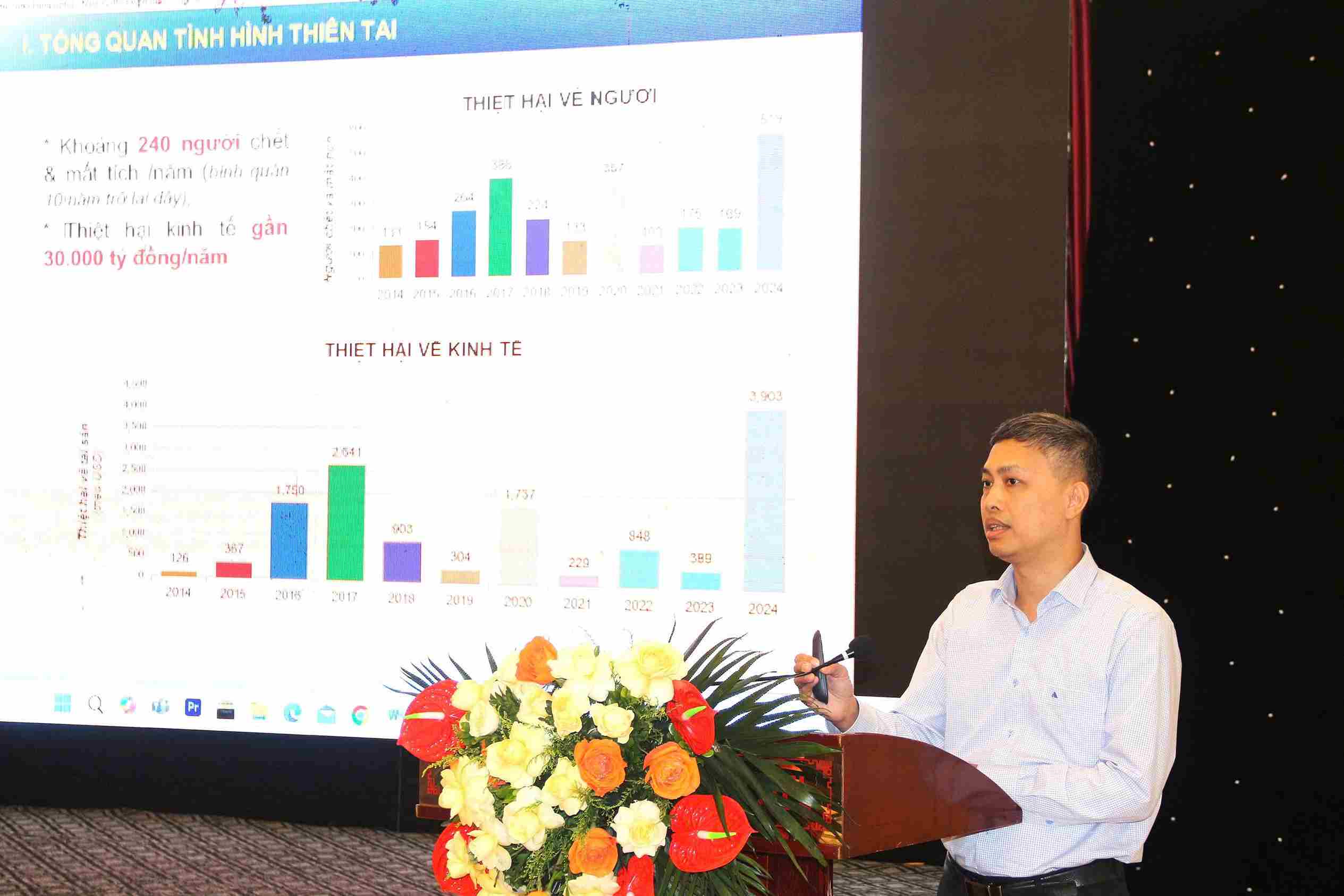On the morning of August 12, in Ninh Binh, the Department of Dyke Management and Natural Disaster Prevention and Control, the Community Fund for Natural Disaster Prevention and Control and the Department of Agriculture and Environment of Ninh Binh organized the Forum "Dismantling and combating natural disasters and early warning in the operation of two-level governments".
At the forum, Mr. Nguyen Xuan Tung - Deputy Head of the Department of Natural Disaster response and response, Department of Dyke Management and Natural Disaster Prevention and Control clearly stated the picture of natural disasters in Vietnam.
In the past 10 years, natural disasters have claimed an average of 240 lives and caused nearly VND30,000 billion in damage each year. Typhoon Yagi in 2024 alone left a record loss with 345 deaths, missing people, and damage of more than VND84,500 billion, along with many records in floods. From the end of 2024 to now, the mountainous areas of the North and Central regions have continuously suffered from unseasonal floods, flash floods, landslides, causing great damage and infrastructure destruction.


In that context, Mr. Cao Duc Phat, former Minister of Agriculture and Environment, Chairman of the Community Fund for Natural Disaster Prevention emphasized that the transition to a two-level government model that puts the commune/ward level at the head of the disaster prevention line from propaganda, planning, material reserves to evacuation, rescue, dyke protection and fund management. He emphasized that in order for the new model to be effective, it is necessary to review authority, identify key forces, allocate means and materials appropriately, perfect policies and enhance response capacity.
From the local perspective, Mr. Bui Xuan Dieu - Deputy Director of Ninh Binh Department of Agriculture, said that after the merger, the province has completed the Civil Defense Command in 129 communes/wards, developed 66 key protection plans at the commune level, 9 key provincial level; established shock forces; invested in an early warning system including rain gauge stations, water level measurement, surveillance cameras, and automatic flood warnings. Thanks to that, when storm No. 3 in 2025 made landfall, Ninh Binh had no human casualties, property damage decreased to about 386 billion VND.
However, in addition to advantages, the locality also faces difficulties in rearranging the Standing Office of the Command Committee according to new regulations; concurrent commune cadres, lack of expertise; response plans in some places are still general; shock forces lack training and equipment; weak infrastructure; slow reporting due to many units.

Discussing at the forum, experts, scientists and management agencies affirmed that close coordination between provincial - commune - community levels is a key factor in early warning and natural disaster prevention and control. The provincial level plays the role of directing, mobilizing resources, and providing technical assistance; the commune level directly implements, supervises and reports; the community participates in monitoring, warning and supporting each other. When these three linkages are connected, the natural disaster prevention and control system and early warning will operate smoothly and effectively, minimizing risks.
The forum also affirmed the need to promote the construction of a sustainable natural disaster prevention and control and early warning system, taking the community as the center, contributing to protecting people's lives, property and livelihoods, towards the goal of "safe society against natural disasters" by 2030.











